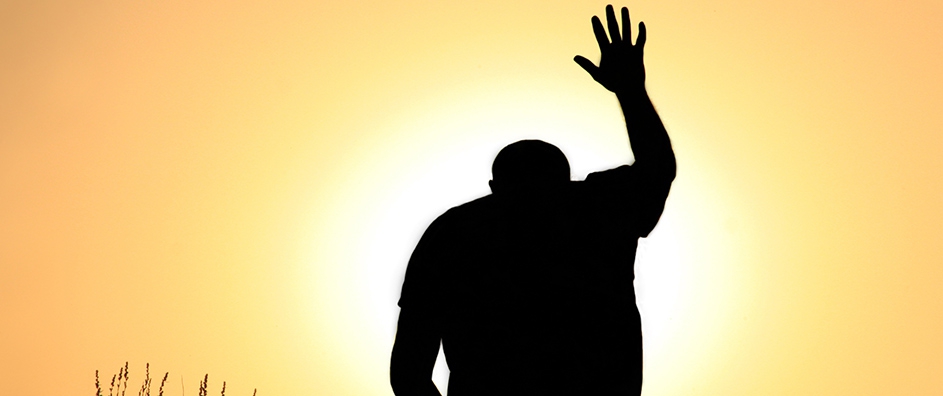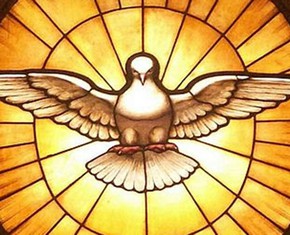The views expressed in our content reflect individual perspectives and do not represent the authoritative views of the Baha'i Faith.
Some years ago, my daughter-in-law asked me if I was saved. A devout Christian, she was concerned that as a Baha’i the destiny of my soul might be in jeopardy.
“At eleven years of age,” I said to her, “I was baptized and confessed Jesus Christ as my personal savior.”
She belonged to a local Baptist church in north Texas at the time. Prior to my becoming a Baha’i at 21 years old, I too had belonged to another Baptist church, so I understood that Baptists accept baptism and affirmation of faith in Jesus Christ for salvation.
So what does it mean to be “saved”?
The question of salvation has had many variations within Christianity over the centuries. In the Eastern Orthodox view, Jesus’s life and teachings in transforming character is the cause of salvation. The crucifixion is therefore understood as a martyrdom.
The Catholic interpretation of salvation revolves around seven sacraments: Baptism, Confirmation, Eucharist, Penance, Anointing the sick, Holy Orders and Matrimony. Under penance, the penitent confesses to a priest to obtain absolution for sins against God and neighbors after being baptized. Catholics believe that Christ, who as the Messiah or God’s Anointed One, is the only savior of the human race.
A basis of this interpretation lies in Christ’s words to Thomas as the hour of his martyrdom on the cross drew nigh: “I am the way, the truth, and the life: no man cometh unto the Father, but by me.” – John 14:6.
Protestants believe that salvation is through grace alone in Christ; good works being a natural consequence of their faith in him. Some churches maintain that salvation can be forfeited if one’s faith and good works falter. Their Sunday services may end with an invitation appealing to attendees to come forward to the front of the auditorium for a confessional before the congregation. Even so, by dying on the cross, many devout Christians believe that Christ took unto himself the sins of humanity.
As a youth I remember attending church services and often feeling urged to confess my own sins and recommit my life to Jesus by the familiar invitation hymn: “Softly and tenderly Jesus is calling, calling for you and for me. … Come home, come home; ye who are weary come home; earnestly, tenderly, Jesus is calling, calling, O sinner, come home!”
The Baha’i view of salvation involves acceptance and obedience. Here is the criterion in Baha’u’llah’s words:
The first duty prescribed by God for His servants is the recognition of Him Who is the Dayspring of His Revelation and the Fountain of His laws … Whoso achieveth this duty hath attained unto all good; and whoso is deprived thereof hath gone astray, though he be the author of every righteous deed. It behoveth every one who reacheth this most sublime station, this summit of transcendent glory, to observe every ordinance of Him Who is the Desire of the world. These twin duties are inseparable. Neither is acceptable without the other. – Baha’u’llah, The Most Holy Book, p. 19.
Jesus called upon his disciples to be fishers of men. Having found salvation through confessing and following Christ as one’s personal savior, Christians were asked to save the souls of their fellow human beings. In today’s turbulent age, Baha’u’llah asks his followers to be quickeners of humanity. Baha’is are therefore challenged to rescue the soul of humankind from succumbing to the grave consequences of spiritual disorders on the planet.
Warning of these disorders, Baha’u’llah has declared:
Witness how the world is being afflicted with a fresh calamity every day. Its tribulation is continually deepening … At one time it hath been agitated by contentions and disputes, at another it hath been convulsed by wars, and fallen a victim to inveterate diseases. Its sickness is approaching the stage of utter hopelessness … – Gleanings from the Writings of Baha’u’llah, p. 39.
In the Baha’i Faith, one’s own salvation inextricably links to all humanity’s salvation. The purpose of religion being the refinement of character and human happiness, acceptance of God’s most recent revelation must then be accompanied by deeds. When a person accepts Baha’u’llah, a desire born out of love to do good works for others may follow. But to make an enduring impact on the soul of humanity, a Baha’i studies the teachings of the divine physician and personally applies them:
The Prophets of God should be regarded as physicians whose task is to foster the well-being of the world and its peoples, that … they may heal the sickness of a divided humanity. … No man, however acute his perception, can ever hope to reach the heights which the wisdom and understanding of the Divine Physician have attained. Little wonder, then, if the treatment prescribed by the physician in this day should not be found to be identical with that which he prescribed before. … In like manner, every time the Prophets of God have illumined the world with the resplendent radiance of the Day Star of Divine knowledge, they have invariably summoned its peoples to embrace the light of God through such means as best befitted the exigencies of the age in which they appeared. They were thus able to scatter the darkness of ignorance, and to shed upon the world the glory of their own knowledge. It is towards the inmost essence of these Prophets, therefore, that the eye of every man of discernment must be directed, inasmuch as their one and only purpose hath always been to guide the erring, and give peace to the afflicted. … These are not days of prosperity and triumph. The whole of mankind is in the grip of manifold ills. Strive, therefore, to save its life through the wholesome medicine which the almighty hand of the unerring Physician hath prepared. – Ibid., p. 80.
As God’s divine physicians to the people, the prophets of God represent the primary path linking humanity to the Creator. In the ages in which they appear, those prophets bring renewed life to the world of humanity through the healing medicine of divine teachings.
You May Also Like
Comments

















The method, intent, and hope of True Life is the same throughout all the Divine Religions. Like the Christ, Baha'u'llah tells us that we must be "Born again" through the baptism of the Spirit of God in order to enter into eternal life; that anything less will leave us "as dead" in the next worlds of God. A message of joy and sacrifice.
"Even as Jesus said: "Ye must be born again." Again He saith: "Except a man be born of water and of the Spirit, he cannot enter into the Kingdom of God. That which is born of the flesh is flesh; and that which is born of the Spirit is spirit." The purport of these words is that whosoever in every dispensation is born of the Spirit and is quickened by the breath of the Manifestation ...of Holiness, he verily is of those that have attained unto "life" and "resurrection" and have entered into the "paradise" of the love of God. And whosoever is not of them, is condemned to "death"..."